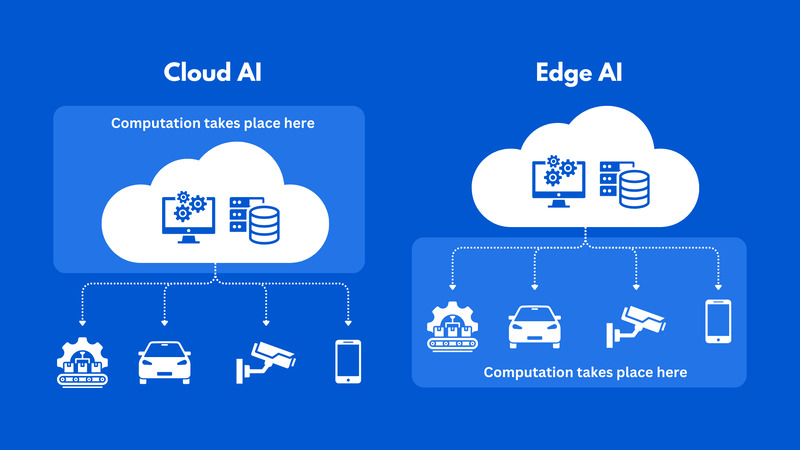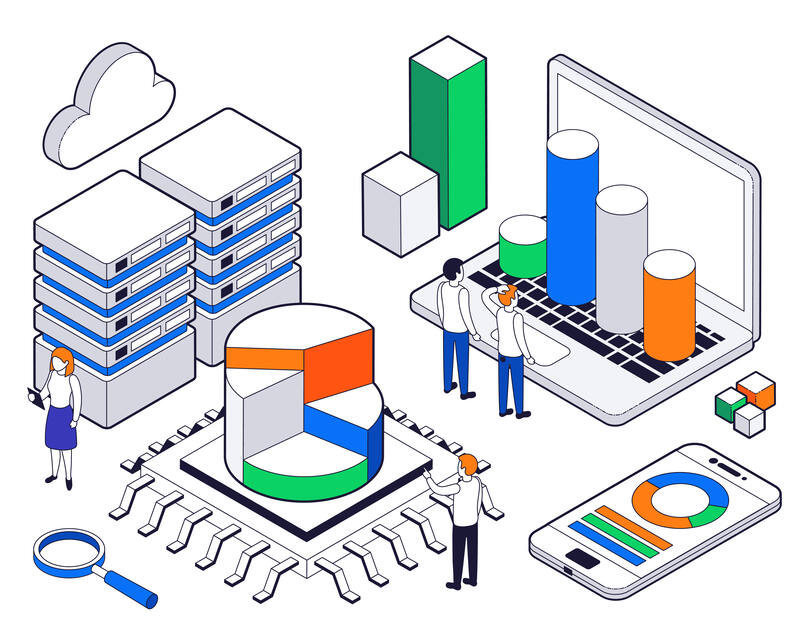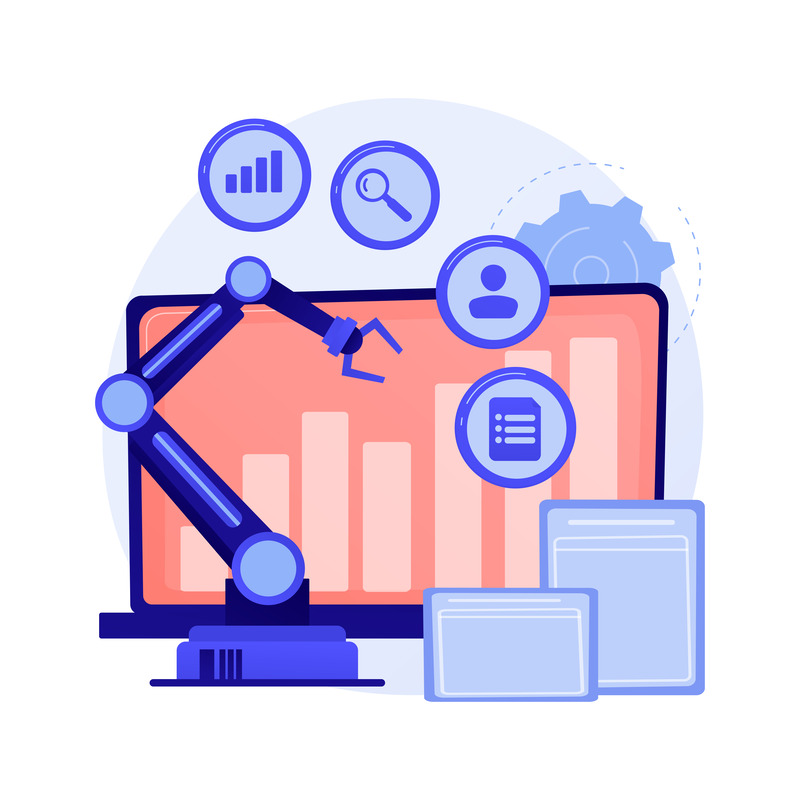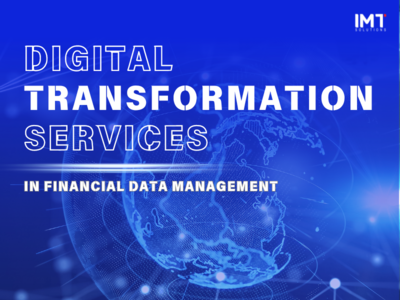WHY EDGE AI IS THE KEY TO FUTURE-PROOFING YOUR BUSINESS?
As smart devices become more prevalent in both social and industrial settings, the need for efficient data processing has become increasingly critical. Edge AI addresses this demand, offering significant benefits and various applications across industries. Grand View Research reports that the market, valued at $17.5 million in 2023, is expected to grow at a 21% CAGR from 2023 to 2030. This growth is fueled by the increased use of AI in smart factories, transportation, energy, and healthcare. In this article, we will define edge AI and discuss its benefits in enhancing business operations across different industries.
What is Edge AI?
Edge AI, also called AI at the edge, refers to the development of artificial intelligence (AI) algorithms and models that are incorporated into edge computing and Internet of Things (IoT) devices. By leveraging edge computing, data is stored locally on these devices. Together with AI utilizing machine learning (ML) capabilities to facilitate the processing of this data, this technology enables real-time, autonomous decision-making capabilities through high-performance computation. This approach eliminates the need to transfer data to a central cloud facility or data center. It reduces data latency and decreases reliance on constant cloud connectivity.

The Benefits of Edge AI in Business Operations
According to a survey conducted by Accenture, approximately 83% of C-level executives across multiple industries believe edge computing will be essential to remain competitive in the future. Edge computing, especially when combined with AI, is transforming how businesses handle data and decision-making processes. Here are some notable benefits for businesses:
- Real-time Data Processing: Edge computing enables the processing of data closer to its source, allowing businesses to analyze and act on information in real-time. This is particularly important for applications that require immediate responses, such as autonomous vehicles, predictive maintenance in manufacturing, and personalized customer experiences.
- Minimized Latency: With this AI approach, the need to send large volumes of data to centralized cloud centers is significantly reduced. This minimizes latency, which is crucial for applications like remote surgery or real-time financial trading, where every millisecond counts.
- Reduced Network Bandwidth: Reduced data transmission means less strain on network bandwidth, which can lower operational costs and improve the overall efficiency of the system.
- On-Device Learning: Edge AI not only processes data locally but also has the capability to learn and adapt over time. This on-device learning allows systems to identify trends and patterns that can lead to more personalized and effective decision-making.
- Cost-Effective Operations: By processing data at the edge, businesses can reduce the need for expensive cloud infrastructure and lower data transmission costs.
- Enhanced Security and Privacy: One of the key advantages of edge computing is its ability to enhance data security and privacy. Since most data is processed locally on the device, there is less need to transfer sensitive information to external locations, which reduces the risk of data breaches and mishandling.
- Scalability: Unlike centralized AI systems, which may require substantial upgrades to accommodate increased data volumes or processing demands, edge AI systems can be scaled horizontally. This means businesses can simply add more edge devices to their existing infrastructure, allowing for seamless integration and expansion without compromising performance or reliability.

Edge AI Applications Across Different Industries
Given these benefits, edge AI has the versatility to be implemented across numerous industries, from manufacturing and healthcare to retail and energy. Its ability to process data locally and in real-time allows businesses in these sectors to enhance operational efficiency, improve decision-making, and reduce costs, making it a valuable tool for driving innovation and competitiveness.
Manufacturing
Edge AI transforms the manufacturing sector with real-time data processing and predictive capabilities for maintenance and failure identification. This can greatly help in optimizing processes in this sector, through taking a more proactive approach to maintenance, facilitating productivity, and reducing downtime. Early issue identification and predictive analysis ensure optimized processes and reduce maintenance costs.

Automotive
This AI model empowers autonomous vehicles to make split-second decisions, such as detecting objects, tracking lanes, and avoiding collisions, all in real-time. These capabilities enhance safety and reliability without requiring constant cloud connectivity, ensuring vehicles operate effectively even in network-limited environments.
Healthcare
In healthcare, AI applications have already transformed the sector with practical applications and introduction to cutting-edge devices. For example, this emerging AI model enables smart wearables to monitor health in real time, aiding in early issue detection and timely intervention. When combined with machine learning, edge AI enhances healthcare data processing, offering more efficient and personalized approaches across various medical applications.

Retail
Managing inventory across both online and offline retail stores is a significant challenge for retailers worldwide. By leveraging this type of AI, businesses can monitor real-time stock levels and accurately predict demand, optimizing inventory management. Additionally, AI applications enhance customer experiences and refine store layout strategies, making retail operations more efficient and customer-focused.
Energy
Edge AI’s real-time data processing capabilities offer significant benefits to the energy sector. By enabling autonomous processes, AI can monitor and analyze energy consumption patterns continuously. This allows for dynamic adjustments in energy use, optimizing efficiency and reducing waste. This technology also plays a pivotal role in the development of smart cities, enhancing autonomous processes.

Shaping The Future of Your Business with Edge AI
In conclusion, edge AI facilitates local data processing, enhancing real-time decision-making and reducing latency. This leads to lower operational costs and increased productivity. The technology excels in handling complex tasks with high efficiency, offering benefits across various industries. It optimizes manufacturing and maintenance processes and improves retail inventory management. By allowing businesses to operate more intelligently and responsively, this type of AI proves its value. As its applications continue to expand, AI shows significant potential for transforming multiple sectors.Moreover, AI has been on the hot seat for the recent couple of years, since its potential application rapidly covers more and more areas of various industries. If you’re interested, please check out our article on how AI can be applied in enhancing customer experiences.








